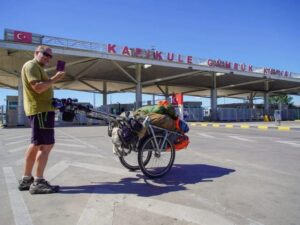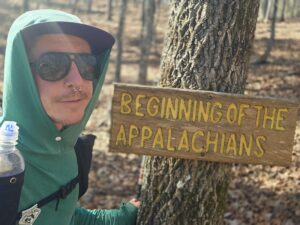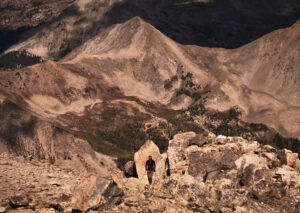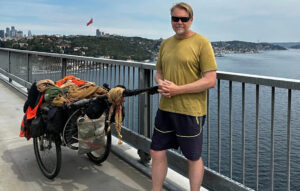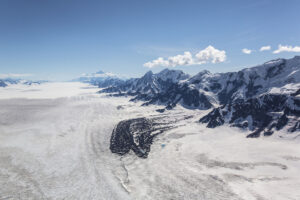Fell running is how the English describe running mountains or high moorlands. Fell runners tend to be a unique breed.
I was first introduced to the sport during my glory days as a trail runner. I’d picked up the book titled Feet in the Clouds, by Richard Askwith, at a time when I can only be described as a typical Kiwi runner: the kind of person who treasures exploring New Zealand’s pastures with little more than relentless forward motion.
Something within the pages of Askwith’s book bought me a little closer to the unique community that is bound by a love of traversing big mountains by foot. Among those pages, I’ll forever remember learning of the runners who carry on with broken ankles, purely for the joy of accomplishing the fell. Fell running is to the English as mountain running is to the Kiwis: confronting rugged landscapes, regardless of the conditions or injury.

The Pennine Way runs 435km through the spine of England to the Scottish border.
The Pennine Way is a typical fell runner backdrop. It’s one of England’s wildest landscapes, traversing rivers, gorges and glacial valleys. It follows England’s spine all the way to the Scottish border, rising 893m across 435km.
Since opening in 1965, the Pennine Way has attracted athletes and recreational cross-country runners on the English trail circuit. But one world record has remained out of reach for more than 31 years.
Fell running legend Mike Hartley took 65 hours and 20 minutes to run the Pennine Way in 1989. He didn’t do it on broken ankle.
Over his career, he claimed many titles, including the Fellsman (Yorkshire Dale’s annual 60-mile event) in 1984, 1987, 1989 and 1990. He set records in the Dales Way (a 130km footpath in northern England) and the Staffordshire Way. When Hartley ran the Pennine Way, he did so without any sleep.

John Kelly was first to beat Mike Hartley’s long-standing Pennine Way record.
Finally, on 16 July 2020, American ultrarunner John Kelly broke Hartley’s record. He completed the route in 64 hours and 40 minutes — just 40 minutes faster — but he held the record for a little more than a week.
Damian Hall is relatively new to fell running. Forty-four years old, he’s been running for just over eight years. In 2011, Hall ran a half marathon that was, by his own admission, “life-changing”. Only four years later, he was representing Great Britain in trail running. He’s competitive but credits the friendships he makes for his success.

Damian Hall.
When Hall shaved more than three hours off Kelly’s record a week later (61 hours 34 minutes), he was also running with an objective to be carbon negative. As such, he didn’t use animal products, or plastic waste, and he collected litter along the way. “I’m hoping there’s not too much, or it might slow me down,” Hall commented shortly before setting off.
In total, Hall had 11 teams accompany him as either pacers or support. When he reached the finish line at The Nag’s Head, he’d run the distance on just 40 minutes sleep.


